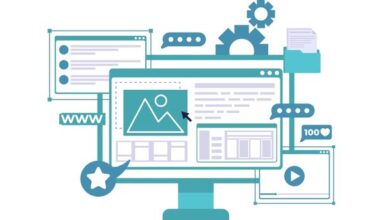Check Stubs For Self-Employed Individuals: How To Create And Manage Them

Managing your funds as a self-employed person can be a difficult task. In contrast to traditional employees, who receive regular paychecks with complete pay stubs, self-employed persons frequently have to produce their check stubs using tools such as a check stubs generator to keep track of their income and expenses. This post discusses the significance of check stubs for self-employed people and provides detailed guidance on making and handling them properly.
Why Are Check Stubs Important For Self-Employed Individuals?
Check stubs are essential for self-employed people for various reasons:
Income Documentation
Because self-employed people sometimes have unpredictable revenue streams, they must track their earnings. Check stubs provide an organized revenue record record tracking and make it easier to manage finances.
Tax Compliance
Individuals who work for themselves must calculate their income and self-employment taxes (Social Security and Medicare). When submitting tax returns, accurate check stubs aid in calculating the right amount of taxes owed and serve as proof of income.
Financial Planning
Financial Planning Check stubs assist self-employed individuals in efficiently budgeting and planning their finances. They provide a snapshot of income and deductions, allowing people to examine their cash flow, set financial objectives, and make educated spending and saving decisions.
Professionalism
Providing check stubs adds professionalism to self-employed firms when dealing with clients or potential partners. It shows transparency and a commitment to organized financial processes, which can boost confidence and trustworthiness.
Loan Applications
Financial institutions frequently ask for proof of income when self-employed individuals apply for loans, mortgages, or credit cards. Check stubs are formal proof of earnings and can help obtain finance.
Rental Agreements
Potential tenants are usually required to provide proof of income to landlords. Self-employed individuals can present check stubs to verify their ability to pay rent, making it easier to get rental agreements.
Legal and Dispute Resolution
Having well-maintained check stubs in a legal dispute or an audit is helpful. They function as evidence of income and expenses and can aid self-employed individuals in safeguarding their financial status.
Expense Tracking
While primarily concerned with income, check stubs can also reflect deductions and costs. It enables self-employed people to keep track of business-related spending, which is helpful for tax deductions and cost control.
Retirement Planning
Self-employed individuals take responsibility for their retirement planning, which involves contributing to retirement accounts like IRAs and 401(k)s. Check stubs can serve as documentation for these contributions, ensuring that retirement planning stays on track.
Creating Check Stubs For Self-Employed Income
Creating check stubs for self-employment revenue is easier than it may appear. Here’s a step-by-step tutorial to get you started:
Gather Necessary Information
Gather all necessary information before creating a check stub, including your company name, contact information, pay period dates, gross revenue, deductions, and net income.
Use Online Tools
Various internet tools and software packages are available to assist you in creating professional-looking check stubs. PayStubCreator, QuickBooks, and StubCreator are all standard solutions. These programs frequently have customizable templates that make it simple to enter your information.
Input Income and Deductions
Fill up the check stub template with the essential information. Calculate your net income (the amount you’ll receive) by adding your gross income (total earnings before deductions) and any deductions (such as taxes, retirement contributions, or health insurance payments).
Check Accuracy
Double-check the accuracy of all the information on the check stub. Income or deduction errors result in financial imbalances and tax difficulties.
Save Electronic Copies
Make an electronic copy of the check stub after producing it. It ensures you have a digital backup in case you need access.
Read Also: Design Professional ID Cards: Unlock Your Creative Potential with Templates
Managing Check Stubs For Self-Employed Income
Managing check stubs for self-employed income is essential to keeping your financial records current and providing proper paperwork for tax purposes. Here are some pointers for efficiently managing your check stubs:
Organize Your Records
Make a separate folder or file system for your check stubs, either physically or digitally. To make them easier to find when needed, organize them chronologically or by pay period.
Maintain Consistency
Make it a practice to make and manage check stubs regularly. Produce a check stub for each payment you receive from a client, customer, or business revenue. It allows you to keep your financial data up to date.
Digital Backups
Make digital copies of your check stubs. Store your current paycheck records in a safe and readily accessible place, like a designated folder on your computer or a cloud-based storage platform such as Google Drive or Dropbox.
Physical Copies
Consider purchasing a file cabinet or a file box if you receive paper checks or prefer physical copies of your check stubs. Label each folder or envelope with the corresponding pay period or client to keep things organized.
Track Business Expenses
Keep a careful account of all business-related expenses in addition to your income. Use accounting software or spreadsheets to categorize and manage expenses relevant to your self-employed employment, such as office supplies, equipment purchases, travel, and marketing.
Secure Storage
Ensure that you keep your physical and digital check stubs safe. Consider password-protecting digital files and safeguarding crucial financial information. If you need to make physical copies, utilize a secure file cabinet or safe.
Regular Review
Check your check stubs regularly to guarantee their accuracy and thoroughness. Examine the data for any irregularities or missing records. Regular review aids in the detection of problems and the maintenance of an up-to-date financial snapshot.
Tax Preparation
When tax season begins, having well-organized check stubs will significantly simplify the process. Calculate your self-employment income, deductions, and self-employment tax payable using your check stubs.
Consult a Professional
Consider seeing a financial advisor or accountant if you need clarification about managing your self-employed finances or help with tax preparation. They can give you helpful advice on how to manage your check stubs and stay in line with tax requirements.
- Why Choose A Developer Recruitment Platform
- Twitter Working on a Jobs Feature: Enhancing Job Opportunities on the Platform
- How Many Gadgets Are There in the World?
Conclusion
Maintaining organization and monitoring finances isn’t just a beneficial habit for self-employed individuals; it’s mandatory. Check stubs are an essential financial tool that adds professionalism, clarity, and organization to your economic life. By meticulously writing and managing your check stubs, you assure transparency and set yourself up for financial success.
Read Also: How Loan Against Gold Can Be Your Savior When Personal Loan is Rejected
So, whether you’re just starting or have been self-employed for years, take control of your finances today. Creating and managing check stubs will give you peace of mind, better trust from clients and partners, and more efficient financial processes. Remember that in self-employment, knowledge is power, and accurate check stubs are your road map to success. Take the first step toward a more prosperous financial future today.





